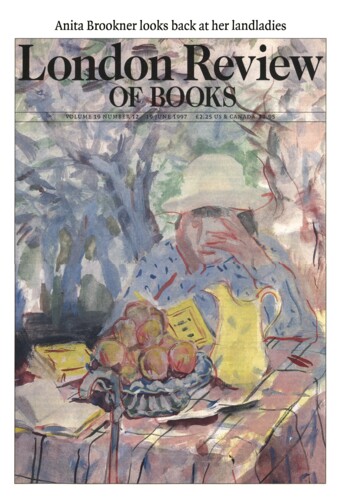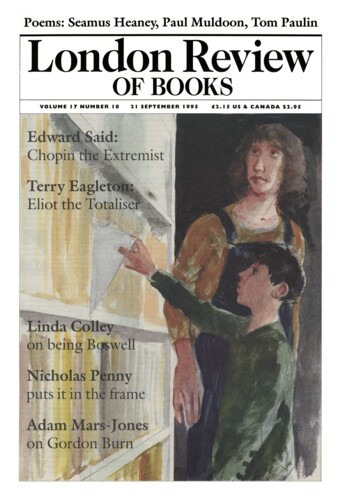Pig Cupid’s Rosy Snout
Jane Eldridge Miller, 19 June 1997
In the memoirs, autobiographies and biographies of those who were central to the development of Modernism, Mina Loy turns up with a Zelig-like ubiquity. She studied art in Munich at the same time as Kandinsky and Klee. Her paintings were exhibited in the 1905 Salon d’Automne in which the first Fauvist works were shown. While living in Florence, she became friends with Gertrude Stein and Mabel Dodge, and had affairs with Marinetti and Papini. She spent the First World War in New York as part of Walter Arensberg’s circle, which included Duchamp, Picabia, Varèse, Man Ray and William Carlos Williams. She sketched Freud in Vienna and lived among the avant garde in postwar Berlin. In the Twenties, when American expatriates flocked to Paris, Loy was there too.


